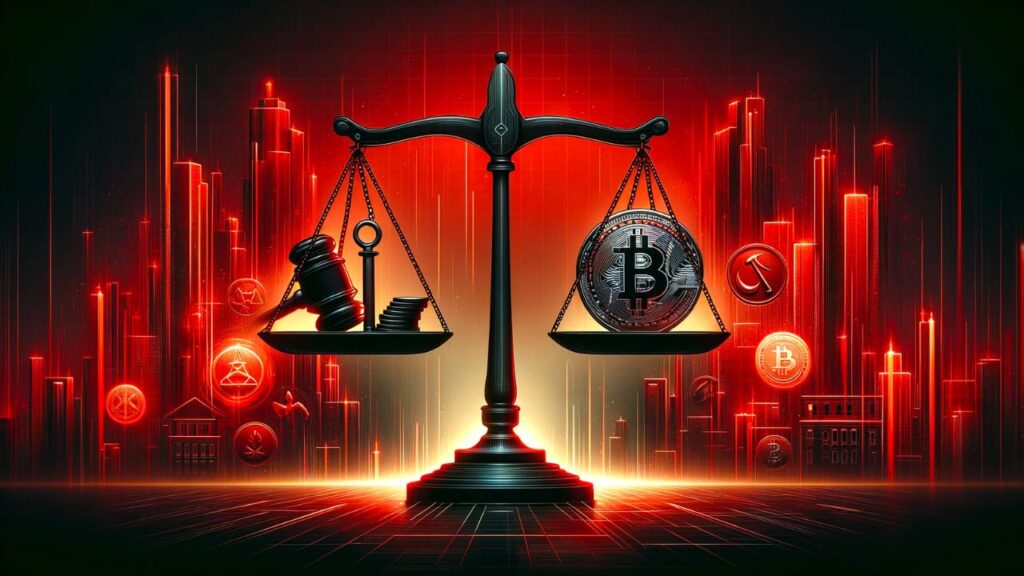
TL;DR: Major crypto exchange leaders like Binance’s CZ, Coinbase’s Brian Armstrong, and now Kraken are facing legal charges and heavy fines from U.S. regulators. This highlights a concerning pattern of stiff opposition from legacy institutions towards crypto innovation. However, a deeper analysis reveals the complex challenges of protecting consumers while enabling progress. Ultimately, cooperation and communication, not punishment, may pave the path forward.
Crypto Titans Toppled
Changpeng Zhao, founder and CEO of Binance, the world’s largest crypto exchange, has agreed to step down and plead guilty to violating anti-money laundering rules. This comes alongside a $4.3 billion fine for the company. The news follows recent charges against Coinbase and Kraken for operating unregistered securities exchanges and misappropriating customer funds in Kraken’s case.
Heavy-Handed Suppression?
These developments paint a troubling picture – are regulators engaging in an unreasonable crackdown to suppress crypto innovation? A closer look reveals genuine consumer protection aims behind the actions. However, legacy regulators also display a lack of crypto expertise, opting for punitive enforcement rather than guidance and clarity. Ultimately, cooperation, not conflict, will best enable crypto’s safe evolution.
Examining each case in detail reveals the complex balancing act at play. Binance violated know-your-customer and anti-money laundering rules designed to prevent financial crime, failing to collect basic identifying information on customers. The charges aim to address genuine risks like terrorist financing and fraud enabled by lax oversight. However, critics note regulators target crypto exchanges for such violations far more eagerly than legacy banks with similar gaps.
Securities Showdown
Regarding Coinbase and Kraken, the core issue lies in whether tokens like Bitcoin constitute unregistered securities. But consensus on what defines a security remains lacking, leaving exchanges struggling to navigate ambiguous rules. Again, consumer protection motivates regulations around securities trading, but regulators display little expertise in applying traditional frameworks to a novel technological paradigm like crypto. Their preference for cracking down first suggests a failure to fully grasp crypto’s workings.
This highlights the need for more communication and less combativeness between legacy institutions and crypto leaders. Crypto by nature resists centralized control, clashing with regulators used to commanding compliance. But its liberating potential hinges on evolving oversight appropriately, not eliminating it entirely. Similarly, regulators must move beyond knee-jerk repression towards educating themselves on crypto’s actual risks and uses so they can provide meaningful guidance.
Seeking Unity
A promising path forward lies in cooperation leading to regulation tailored specifically for crypto, addressing its unique properties and actual dangers transparently. Compromise that protects consumers while supporting beneficial innovation should satisfy all sides. But understanding and openness to new ideas remains essential. Legacy institutions must recognize crypto’s paradigm-shifting promise; crypto leaders must willingly adapt frameworks that enable that promise safely. With wisdom and willingness to learn on both sides, crypto can flourish with social benefit.
The Empire Strikes Back represents legacy institutions feeling threatened and lashing out blindly. But violence and power plays only breed further hostility. Progress depends on seeking the higher path – one of compassion, integrity and vision. With patience and perseverance, the way forward will emerge. Crypto’s highest expression beckons when all parties unite behind the shared goal of elevating human freedom and potential. Our financial system can evolve profoundly for the better – if we walk in unity.
Thank you for reading “The Empire Strikes Back: The Delicate Dance of Regulating Crypto Leaders“.
- Subscribe to our newsletter: ConsensusProtocol.org
- Follow us on Twitter: @ConsensusPro
Sources:
Binance CEO Changpeng Zhao to Plead Guilty to Violating U.S. Bank Secrecy Act
SEC Charges Kraken With Illegally Operating Unregistered Exchange
SEC Sues Coinbase Over Crypto Asset Listings




